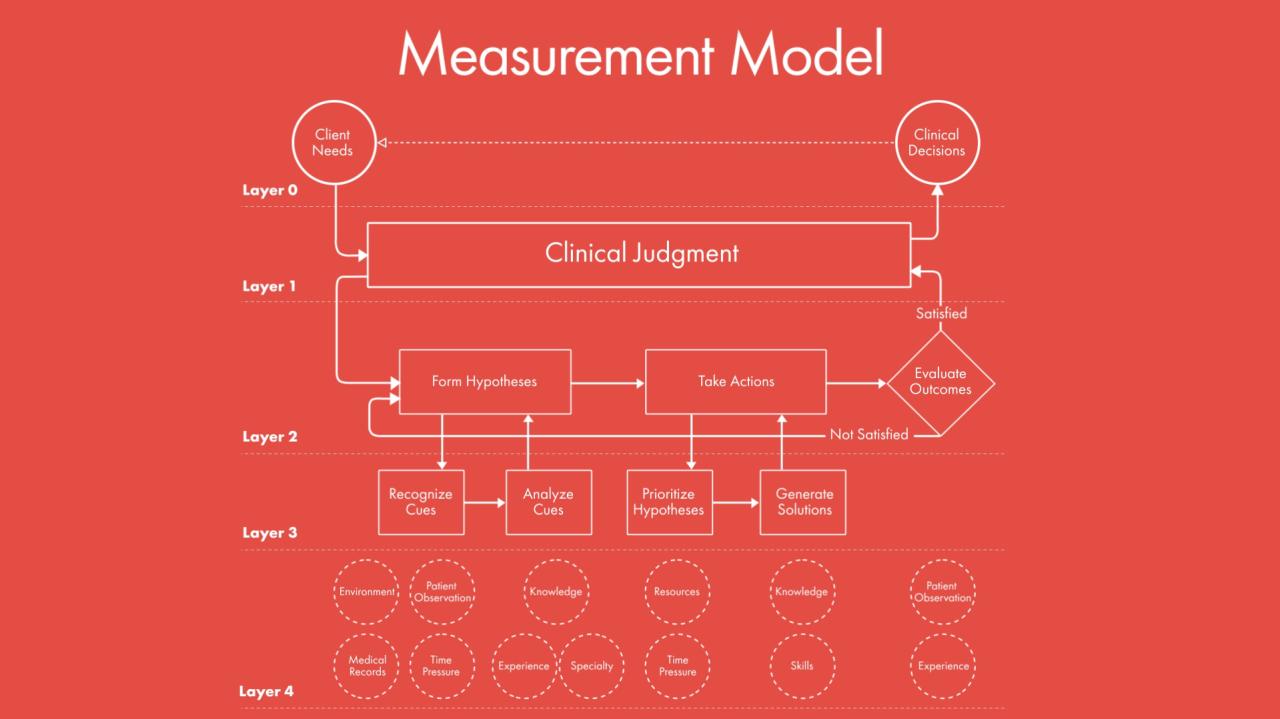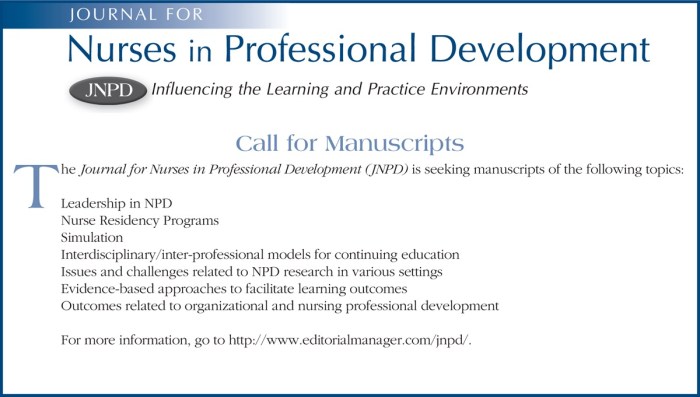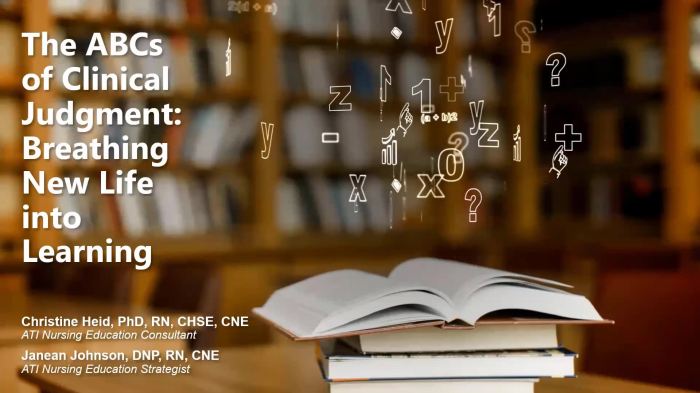Knowledge and clinical judgement ati – Knowledge and clinical judgment ati are the cornerstones of nursing practice, empowering nurses to make informed decisions and provide optimal patient care. This multifaceted concept encompasses the acquisition, application, and evaluation of knowledge in clinical settings, shaping nurses’ ability to assess, diagnose, and manage patient conditions effectively.
Nurses draw upon a diverse range of knowledge types, including theoretical, empirical, and personal, to form clinical judgments. Theoretical knowledge provides a foundation of nursing principles and scientific evidence, while empirical knowledge stems from research and clinical experience. Personal knowledge, gained through individual interactions with patients and colleagues, further enriches nurses’ understanding of patient needs and preferences.
1. Knowledge and Clinical Judgment

Knowledge and clinical judgment are fundamental to nursing practice. Knowledge provides the foundation for understanding the patient’s condition and guiding interventions, while clinical judgment enables nurses to apply this knowledge to make decisions and provide individualized care.
Relationship between Knowledge and Clinical Judgment
Clinical judgment is the ability to integrate knowledge, experience, and critical thinking to make sound decisions in patient care. It is a complex process that requires nurses to have a deep understanding of both the science and art of nursing.
2. Types of Knowledge in Nursing

Theoretical Knowledge
Theoretical knowledge is derived from nursing theory and research. It provides nurses with a framework for understanding the patient’s condition and guiding interventions.
Empirical Knowledge
Empirical knowledge is based on clinical experience and observation. It allows nurses to develop a deeper understanding of the patient’s condition and to make more informed decisions.
Personal Knowledge
Personal knowledge is based on the nurse’s own experiences and beliefs. It can influence the nurse’s clinical judgment, but it is important to be aware of potential biases.
3. Developing Clinical Judgment: Knowledge And Clinical Judgement Ati

Clinical judgment develops over time through a combination of experience, education, and reflection.
Experience
Experience provides nurses with the opportunity to apply their knowledge in real-world situations. It helps them to develop a sense of what is normal and abnormal, and to recognize patterns that may indicate a change in the patient’s condition.
Education, Knowledge and clinical judgement ati
Education provides nurses with the theoretical knowledge and critical thinking skills necessary for clinical judgment. It helps them to understand the science behind nursing interventions and to make informed decisions.
Reflection
Reflection allows nurses to critically evaluate their own clinical judgment and to identify areas for improvement. It is an essential part of developing clinical judgment and ensuring that nurses are providing the best possible care.
4. Using Knowledge and Clinical Judgment in Practice
Nurses use knowledge and clinical judgment in a variety of clinical settings, including:
- Assessing patients
- Developing care plans
- Administering medications
- Providing patient education
- Monitoring patient outcomes
Clinical judgment is essential for providing safe and effective patient care.
5. Challenges to Knowledge and Clinical Judgment
Nurses may face challenges in applying knowledge and clinical judgment, including:
- Lack of experience
- Limited access to resources
- Time constraints
- Cognitive biases
It is important for nurses to be aware of these challenges and to develop strategies for overcoming them.
6. Implications for Nursing Education and Practice
Knowledge and clinical judgment are essential for nursing practice. Nursing education should focus on developing these skills through a combination of theoretical and clinical experiences.
In practice, nurses should be supported in their efforts to use knowledge and clinical judgment to provide the best possible care for their patients.
Commonly Asked Questions
What is the significance of knowledge and clinical judgment in nursing?
Knowledge and clinical judgment are essential for nurses to make informed decisions, provide safe and effective care, and adapt to the ever-changing healthcare landscape.
How do nurses develop clinical judgment?
Clinical judgment is developed through a combination of education, experience, and reflection. Nurses must engage in ongoing learning, seek opportunities for clinical practice, and actively participate in reflective activities to refine their clinical judgment skills.
What are the challenges nurses face in applying knowledge and clinical judgment?
Nurses may face challenges in applying knowledge and clinical judgment due to factors such as time constraints, complex patient conditions, and limited access to resources. Overcoming these challenges requires critical thinking, collaboration, and a commitment to continuous learning.